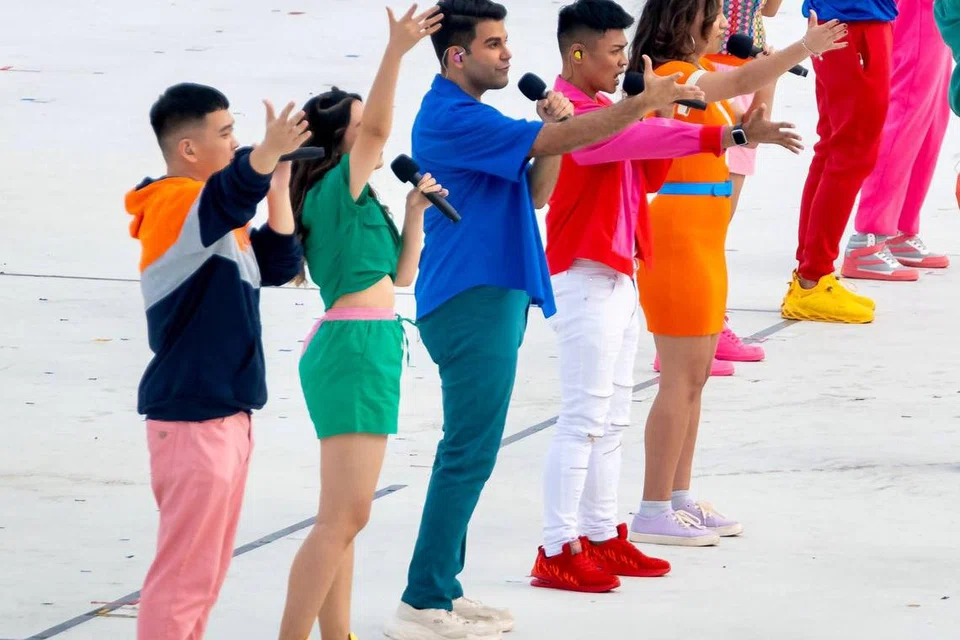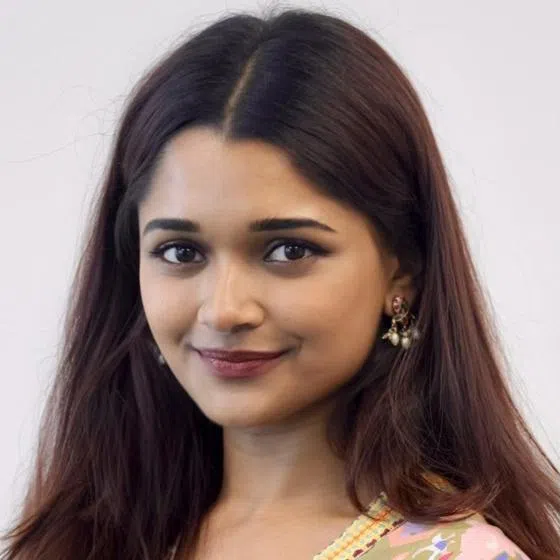In a city where ambition often wears a sharp suit and speaks in spreadsheets, Mr Jayesh Melvani’s pursuit of music as a career follows closely behind his day job.
By day, he’s a lawyer – a steady, buttoned-up professional that is a staple presence in Singapore’s fastidious work culture. But by night, he slips into a different role entirely: a baritone singer in ‘The Island Voices’, a local a cappella group that has seen its songs become a National Day mainstay ever since its debut at the parade in 2022.
Uniquely, Mr Jayesh, 27, is the only Indian member of the group, a distinction that has influenced both his, and the band’s musical journey.
The Island Voices started by happenstance, a patchwork of friends and singers cobbled together in late 2021 at the behest of the NDP 2022 music director. Mr Jayesh was actually the only member of the lineup that the founder, Mr Owen Li didn’t personally know. Owen was hunting for an Indian baritone who could sing in Tamil and a friend passed along Mr Jayesh’s name. “I was the only one Owen didn’t know, and the one he took a chance on,” Mr Jayesh recalled.
The group’s visibility swiftly grew beyond its initial purpose. Their viral YouTube mashups and appearances in international a cappella competitions, from Taiwan to Austria, cemented their place as a “super group” within Singapore’s diverse musical scene, mirroring the city-state’s multiracial identity.
Within The Island Voices, Mr Jayesh has woven elements of his Indian heritage into their collective sound, through subtle reharmonisations and rhythmic inflexions. Indian music, he said, shares some stylistic DNA with R&B and pop – genres that define much of The Island Voices’ repertoire. This meant he could borrow influences from one to enhance the other.
“I’m proud to bring that aspect to a wider audience,” he said, “especially because it helps people outside the Indian community discover this part of our culture.”
However, for Mr Jayesh, singing in Tamil, a language he did not grow up speaking, called for rallying his Tamil-speaking friends to perfect his pronunciation and help internalise cultural nuance.
This took them to performing Munnaeru Vaalibaa on the floating platform at the National Day Parade (NDP) in 2022 and releasing the official cover of Singai Naadu in 2024. The latter song, composed and sung by local musician Shabir Sultan has, since its release, grown in popularity beyond Singapore’s borders.
“Jayesh and Island Voices gave the song a new life while preserving its soul. I’m thankful we could offer this to the nation, from the community. When I released Singai Naadu in 2012, I didn’t expect it to travel this far. It wasn’t part of any official campaign or NDP initiative. It was simply a personal love letter to Singapore,” Mr Shabir shared.
Rehearsing for the NDP, Mr Jayesh recalled, was a marathon of physical and emotional endurance. Past year rehearsals often required a 12-hour commitment each day, with a 10am calltime, starting with hair and makeup, choreography, and ending with multiple run-throughs in the actual performance spaces.
The preparation often started in January with recording sessions and ramped up through March and May with rehearsals at campgrounds. Mr Jayesh recalls the special energy of performing for primary school audiences during P5 shows, the children’s exuberance backstage, waving banners and singing along, fueling the group’s own performance vitality. “We loved the P5 shows so much,” he said. “That energy is what we bring to the actual parade performances.”
This year, the group were featured in the music video of this year’s National Day song, Here We Are. Mr Jayesh looks back on the day of the shoot fondly, having had the chance to brush shoulders with artists whose music made recurring cameos in his childhood. Kit Chan’s national day classic, Home, is one that he believes has achieved a distinctive degree of adulation that cannot be replicated.
While representing Singapore on a national stage is a delicate balancing act, which Mr Jayesh said he carries with both pride and pressure, “there’s a lot at stake when you’re seen as representatives,” Mr Jayesh noted. “We want to push boundaries but also be mindful of the image and responsibility that comes with that.”
A key part of navigating that balance lies in the music he creates, which is shaped by influences that speak to both his cultural roots and contemporary identity. From the Indian league, legends like Sunidhi Chauhan, Shreya Ghoshal and A. R. Rahman inform his sensibility, as does the contemporary rise of local rapper Yung Raja, a friend and fellow alumnus of Singapore’s Music and Drama Company.


